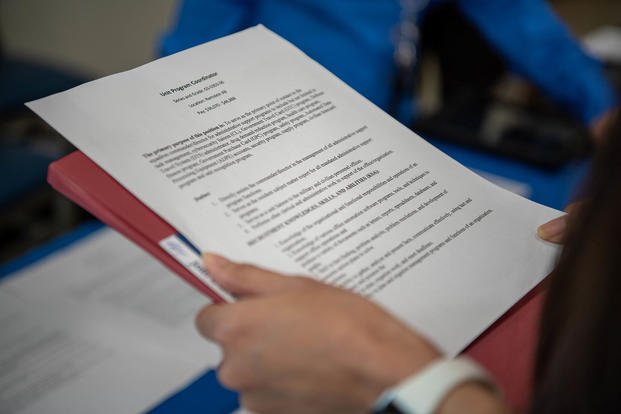Adapted from "MONSTER CAREERS: How to Land the Job of Your Life."
Civilian employers rarely know how to apply experience in the military to civilian work, and thus a veteran starting a job search needs to help employers translate their work experience, skills and personal qualities from one setting to the next. A few adjustments to resume and job interview style will substantially reduce the "knowledge gap" between the military and civilian sectors.
First, change the tone of your military resume. It's very common to see military resumes that are too long, too broadly focused and filled with military jargon.
All those acronyms only emphasize that you're coming from a very different culture, so strike them out in favor of clear job descriptions.
Whereas most job seekers choose to start their resume with either a career summary (what you offer) or an objective statement (what you want), candidates leaving the service may want to include both.
Write your summary with the job you target in mind and state in the objective that you wish to transition your relevant military skills into that job. (This is most effective if you've chosen a specific career path. If you are examining several, use multiple resumes.)
Now, here's the hard part: Information that does not relate to your goal should be eliminated from your resume, and this includes long lists of unrelated military awards, training and distinctions. That medal you won for rifle marksmanship doesn't belong on a civilian resume.
You may bring a list of those distinctions to the interview, ready to discuss them -- and even mention in a cover letter that, if the employer wishes, you'll be happy to discuss your military commendations in detail.
Later, if you discover during a job interview that the person across the table also has a military background, a separate sheet listing military achievements can be an influential leave-behind.
Follow a short paragraph describing each position you've held with a bullet list of accomplishments, stated so the average civilian understands the importance of your achievements and the measurable outcomes.
Here's an example of a "demilitarized" work achievement statement for an Army information technology (IT) specialist:
- Increased civilian employee retention rate 16% by focusing on training, team building and recognition programs. Earned reputation as one of the most progressive and innovative IT organizations in the Army's communications and IT community.
For every achievement you note, ask yourself, "Why might this employer care about this experience?" Here's an example of incorporating a military achievement (and a relevant award) on a resume because civilian employers understand its value:
- Received Army Achievement Medal for completing 400+ medical evaluations and developing a patient database using MS Access. The database improved reporting functions and tracked patient demographics, records, medication, appointments and status.
A military background can be invaluable proof that you possess qualities such as discipline, self-motivation and learning ability. By running your job search according to civilian rules, you show that in your attitude, professionalism and readiness to work, you are already making the transition to a civilian career.
Find the Right Veteran Job
Whether you want to polish your resume, find veteran job fairs in your area or connect with employers looking to hire veterans, Military.com can help. Subscribe to Military.com to have job postings, guides and advice, and more delivered directly to your inbox.











